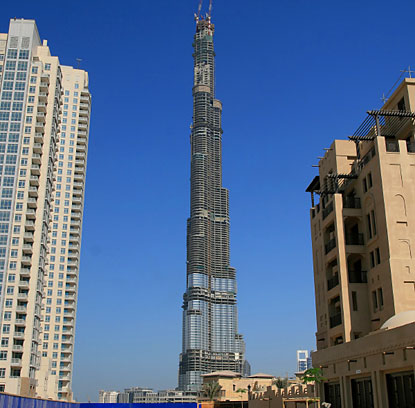As the rest of the world struggled in the grip of the economic crisis, the Middle East has remained a bastion of growth. Even as Dubai welcomes the telecoms industry's biggest and brightest players, the dust was already settling on a financial setback which shook the local market only days before.
December 9, 2009

As the rest of the world has struggled in the grip of the economic crisis, the Middle East has remained a reliable engine of growth. But as Dubai welcomes the telecoms industry’s biggest and brightest players, it is recovering from a financial setback which has shaken the local market in recent days.
When Dubai World, the country’s main government-backed development group announced a restructuring of its substantial debt obligations, many expected a day of reckoning. But what took place was effectively a brief market panic followed by a state of calm. At the same time, construction on Dubai’s newest crown jewel and the world’s tallest building – the Burj Dubai, standing at more than 800 metres high – was drawing to a close.
Work started on the Burj back in 2004 when Dubai’s confidence was at a peak and business everywhere was booming. So when the tower opens in early January 2010, it will stand as a symbol of how not just Dubai, but the wider Middle East region, has weathered the global economic storm and emerged in a new age with a new, perhaps more conservative, outlook.
While the Middle East and Gulf region has benefited from the liberalisation of markets in many states, through reduced regulations on foreign ownership and investment which have acted as an incentive for foreign and private sector business, it’s fair to say the effects of the economic climate are still being felt. Indeed, the opening focus of this week’s GSM>3G Middle East Telco World Summit was on international expansion opportunities for Middle Eastern operators. The participants in the plenary session, which included Dr Saad Al Barrack, CEO of Zain and Jamal Jarwan, group chief international investments officer for Etisalat, investigated how carriers can maximise opportunities for expansion as a result of the economic crisis.
“Since the onset of the recession, investors in telecoms have become more cautious, in stark contrast to the bubble that built up in telecom-asset prices over the previous few years,” said Matthew Reed, principal analyst for the Middle East at Informa Telecoms & Media. “Egypt pulled plans to offer a second-fixed license because of the recession, for example. And at a retail level, consumers appear to have become more price-conscious – though increasing price competition is a consequence of the debut of new operators in Kuwait, Qatar and Saudi Arabia, as much it is due to a change in consumer sentiment.”
Nowhere is regional competition more intense than in Saudi Arabia, which is the third largest mobile market in the Middle East, with over 33 million mobile subscriptions, and the introduction of a third player, Zain, in 2008. Speaking to telecoms.com, Hany Mokhtar, executive manager, business segments, for Mobily, Saudi’s second biggest mobile operator, said: “The impact is really tough on North Africa, Egypt and Levant, yet it is mild when coming to the Gulf region, yet in all cases, the telecommunications sector is now working from a cost effective perspective rather than a sole solution or business tool, which is being reflected in most of the operators’ ads.”
2009 also saw the launch of the first two MVNOs in the Middle East, which commenced operations in Oman in the second quarter and fuelled competition. Friendi made its debut in April, and Renna followed shortly after. Both Friendi and Renna are hosted on the network of Oman Mobile and have each said that they had attracted more than 50,000 subscriptions within two months of launch.
In order to combat this competitive intensity, there was much talk at the event on how mobile operators are using Value Added Services (VAS) like music and entertainment-related content, location-based services, and social networking to derive new revenue streams from tech-savvy customers.
About the Author(s)
You May Also Like








.png?width=300&auto=webp&quality=80&disable=upscale)


_1.jpg?width=300&auto=webp&quality=80&disable=upscale)


.png?width=800&auto=webp&quality=80&disable=upscale)